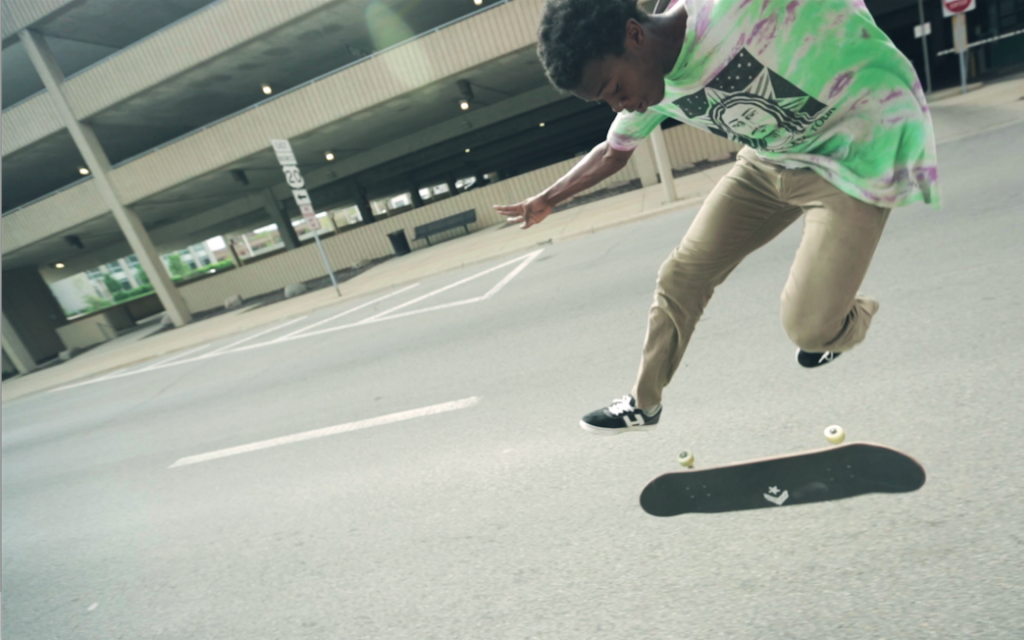After several unsuccessful attempts, Keire Johnson finally lands a tough skate trick. He winds his board in front of his friends, who cheer and give him high-fives. As he watches the recording of the trick playing back on his friend’s camera, a smile on his face, his voice plays over the image:
“This is the result of all those times I ran away from home to the skate park.”
Minding the Gap is more than a documentary about a group of guys from rustbelt America who love to skate; it’s a complex, endearing, and often painful portrait of modern-day masculinity, and the trauma it inspires. By blending the two elements, and patiently revealing the extent of each subject’s troubled lives, Minding the Gap succeeds in compelling its subjects to assess their masculinity, and make positive changes to their lives.
The film centres on the lives of three young men. Keire’s a lovable, emotionally-charged black teen who discovered the meaning of family amidst the white kids at the skate park. Zack Mulligan is a young father, struggling to build a better future for his family while routinely drinking to excess.
Then there’s Bing Liu, who is both subject and director. The film proper was shot over four years, but borrows from 12 years of his personal footage. While he remains behind the lens for the majority of the documentary, Bing is nevertheless a constant presence; we hear his conversational questioning during the interview segments, and see his shadow on the edge of frame as he skates alongside his friends.

Minding the Gap opens with the trio trespassing on private property in search of a new place to skate. As they ascend a fire escape, nervously commenting on how high they’re getting, Zack decides he doesn’t have the nerve to continue. Bing and Keire follow him back down without a hint of mockery or bravado. There’s an undeniable bond between them that transcends the machismo audiences might expect to see in such a film.
This bond isn’t just a result of their years of friendship, or mutual love of skateboarding. All three come from abusive homes, in which violent fathers assaulted their wives and children for any perceived slight. The dark shadows of the past weigh heavily on each of them still, and as they make the transition into adulthood, their ability to cast these shadows off is put to the test.
Bing, with help from co-editor Joshua Altman, masterfully reveals the extent of the trio’s hardships in order for audiences to more easily understand how hard it is for them to let go of the past. He shows Keire crying as he searches for the gravestone of the father who hurt him. He does not challenge his mother when she says that the step-father who beat him was a sweet man at heart. And when it seems Zack might have assaulted his partner, Nina, Bing takes his time figuring out how best to confront his friend in order to make Zack see the impact of his actions. The resulting scene is one of the best in the documentary, and provides raw insight into the circle of violence so prominent not just in their home city, but in cities all across the world..
Minding the Gap is a deeply personal project – this is clearly a tale Bing had to tell – and it’s a cathartic one. Bing wants to heal. He wants his friends to heal. When he tells Keire that he was chosen as a subject because Bing saw himself in Keire’s story, Keire’s reaction is simple, yet powerful. He smiles. And in that smile, there is hope – an unmistakable sign that the healing has begun.
—
Minding the Gap screens exclusively at ACMI 17 Jan – 5 Feb.
Click here for more details and to book your tickets now.
